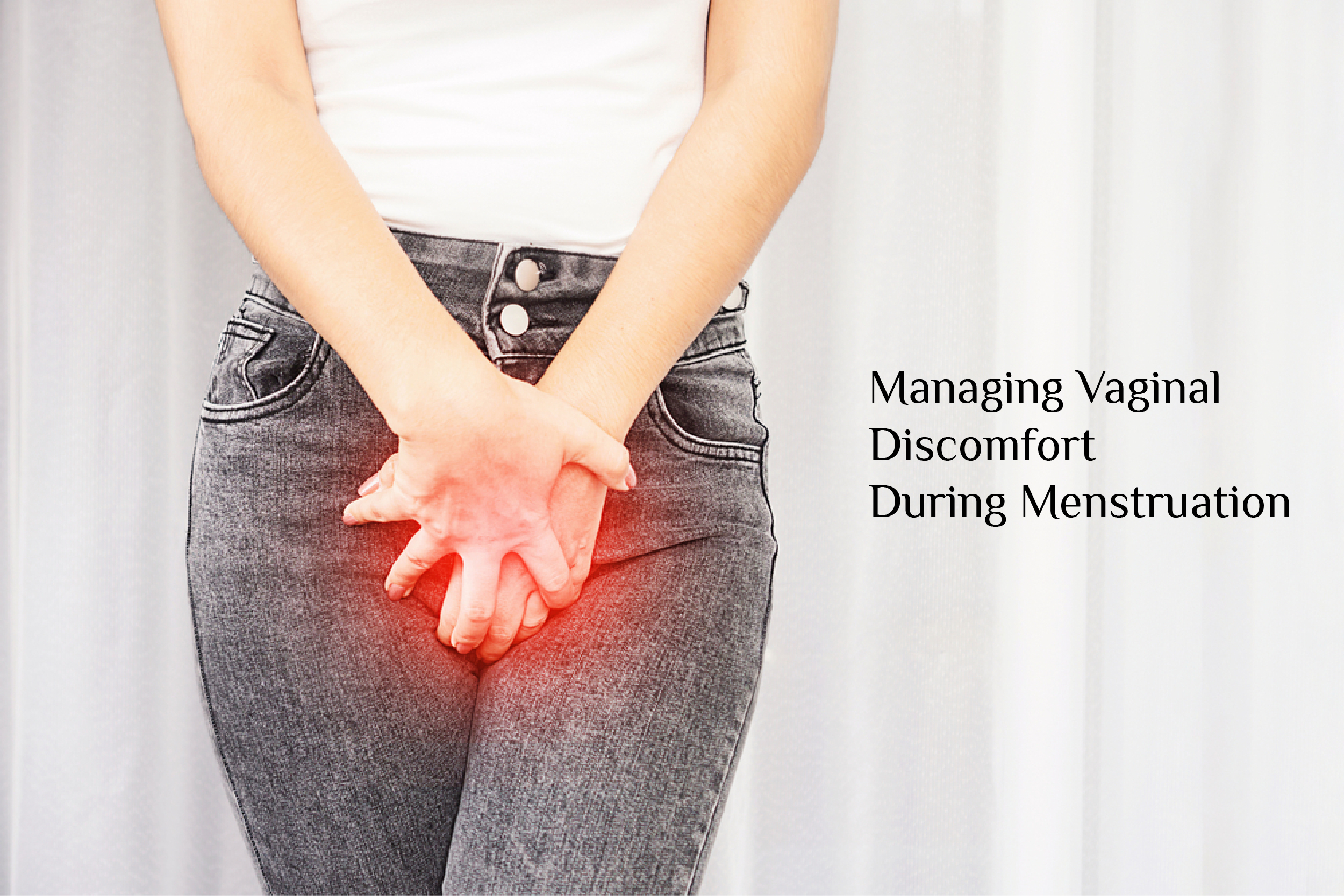Managing vaginal discomfort during menstruation involves a combination of good hygiene practices, symptom relief strategies, and addressing any underlying health conditions. Here are some tips to help alleviate discomfort:
Hygiene Practices:
- Regular Changing of Pads/Tampons: Change menstrual products every 4-6 hours to prevent irritation and infections.
- Use Breathable Fabrics: Wear cotton underwear and avoid tight clothing to reduce moisture buildup.
- Gentle Cleaning: Use mild, unscented soap and warm water to clean the vulva. Avoid douching as it can disrupt the natural balance of bacteria.
Symptom Relief:
- Pain Relief: Over-the-counter pain relievers like ibuprofen or acetaminophen can help reduce cramps and discomfort.
- Warm Compress: Applying a warm compress to the lower abdomen can help relieve cramps and improve blood flow.
- Hydration: Drinking plenty of water can help reduce bloating and ease discomfort.
- Diet: Eating a balanced diet rich in fruits, vegetables, and whole grains can reduce inflammation and promote overall health.
Lifestyle Adjustments:
- Exercise: Light exercise, such as walking or yoga, can help reduce menstrual discomfort and improve mood.
- Stress Management: Techniques such as deep breathing, meditation, or gentle yoga can help manage stress, which may exacerbate discomfort.
When to See a Doctor:
- Severe Pain: If the pain is severe and unresponsive to over-the-counter medications, it may indicate a condition such as endometriosis or fibroids.
- Unusual Discharge: Any unusual discharge, especially with a foul odor, may indicate an infection.
- Heavy Bleeding: If you experience hefty bleeding or periods lasting longer than a week, seek medical advice.
Additional Tips:
- Menstrual Cups: Some women find menstrual cups more comfortable and less irritating than pads or tampons.
- Probiotics: Taking probiotics can help maintain a healthy vaginal flora, potentially reducing discomfort.
- Anti-Inflammatory Foods: Foods rich in omega-3 fatty acids, like fish and flaxseeds, can help reduce inflammation and pain.
By combining these strategies, you can better manage vaginal discomfort during menstruation. If pain persists or worsens, it’s important to consult a healthcare provider for personalized advice and treatment.


